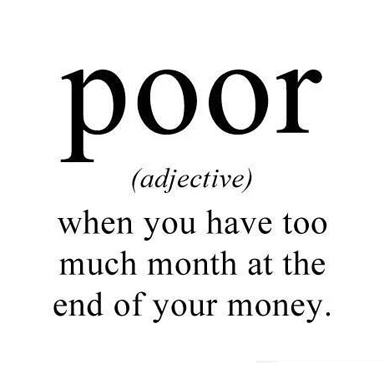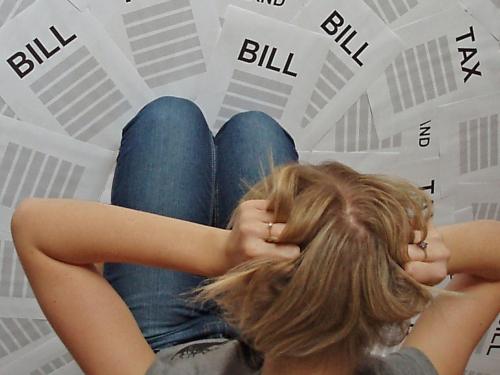Did I ever tell you guys that I had previously paid off over $20K in debt way back in my early 20’s? No? Well that’s another story for me to put up here some day, but that experience taught me loads about debt consolidation services. If you find yourself in debt and are considering a debt consolidation or their services, please read this article before picking up the phone.
I was a dumb 18-year old that, like most teenagers, thought that I knew everything. I racked up credit card bills paying for stupid things like lots of long distance phone calls to my boyfriend here in New York while I was away at school, airfare back home, textbooks and transportation. I also very stupidly paid for things for my boyfriend with his promise to (HA!) pay me back. I had tried to be conscientious, but college costs can sometime spiral out of control, especially when you don’t have a part-time job.
My debt reached over $20K on credit cards before I knew it and I was barely 21. It was then that I decided that I had had enough and I needed to tackle my debt head on. Since I didn’t know the first thing about debt repayment or how to talk to the credit card companies except to ask them to raise my limit, I knew that I needed help. At the time there were a few debt consolidation companies advertising on the television, so I thought that I would possibly use one of those companies to help me pay back the debt.
Debt consolidation companies can be valuable tools in helping you repay your debt and avoid filing bankruptcy, however, if the wrong company is chosen, you may find yourself in even more debt than when you began. It is for this reason that I very strongly recommend that you do your due diligence before deciding on a company to work with. Before choosing which company to work with, I did some thorough work on the legitimacy of each company as well as feedback from previous clients on the experience of working with them.
- I made sure that each company was listed as a non-profit entity
- I checked each company’s reputation with the Better Business Bureau
- I poured through each company’s website for their standard rules & procedures as well as any fees that they might charge for using their services
- I checked online for feedback from individuals that had used each company for debt repayment
- I checked my local Attorney General’s website to see if there were any complaints and/or lawsuits pending against each of the companies that I wanted to work with. Incidentally, my Attorney General’s website had a plethora of information on debt consolidation companies in general
Arned with the information above, I chose one company to work with.
How the process typically works is this: the consolidation company will call each of your credit cards to arrange a debt repayment plan on your behalf. Typically the credit card companies will agree to stop charging interest and they may even accept lower monthly payments than your current minimums. In exchange your credit cards will be closed and it will appear on credit report as “Closed by Issuer” or something of that nature showing that the credit card company closed the account. It is somewhat of a strike against you on your credit report.
You must know before beginning that many debt consolidation companies will tell you to stop paying your credit cards while they negotiate with the company. I think that they use this as leverage to say that you are about to default, however, not all credit card companies will agree to debt consolidation and you will be left in a 30 days late or default status. I say, continue paying your credit cards, but at the minimum.
When you enter a repayment program, your payments are sent to the consolidation company who then sends payments over to your creditors. They will often tell you to not send payments directly to the credit card companies. Just be sure to monitor your credit cards to make sure that the consolidation company is actually sending out your payment and doing so on time so that you don’t end up with late fees. Some less reputable companies have been known to send payments out late, or worse, not send them at all!
Also, as I briefly mentioned above that some companies will charge a monthly fee. This is how they make their money, as well as I’m sure, having the credit card companies pay them a percentage of your total payment as a fee. What many people do not know is that you have the option, at least in the U.S., of opting out of paying them the monthly fee. If you are dealing with a reputable company, tell them that you do not want to make the donation amount to the company. My feeling is that if you have to enter a repayment plan, why add what is essentially another bill to the fray?
Back to my own experience. Eight months into my repayment plan, I received a settlement from a car accident that I had been involved with and used the money to pay the entire balance off. It was probably the smartest thing that I could have done at the time since having that debt hang over me kept me up at night. I was incredibly lucky to have successfully avoided bankruptcy. One of my creditors even agreed to reopen my card and that I have now had that particular credit card for 15 years. You can go through this process successfully.





















